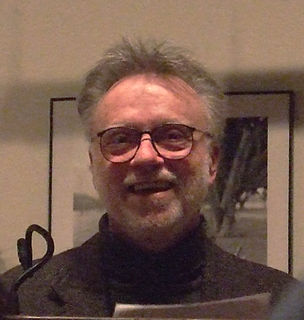A Quote by Anne Lamott
Becoming a writer is about becoming conscious. When you're conscious and writing from a place of insight and simplicity and real caring about the truth, you have the ability to throw the lights on for your reader. He or she will recognize his or her life and truth in what you say, in the pictures you have painted, and this decreases the terrible sense of isolation that we have all had too much of.
Related Quotes
Simply put, meta-writing is writing that is self-conscious, self-reflective, and aware of itself as an artifice. The writer is aware she's writing, and she's aware there's a reader, which goes all the way back to Montaigne's often-used address "dear reader," or his brief introduction to Essais: "To the Reader." It can be done in a myriad of ways.
When you are sixteen you do not know what your parents know, or much of what they understand, and less of what's in their hearts. This can save you from becoming an adult too early, save your life from becoming only theirs lived over again--which is a loss. But to shield yourself--as I didn't do--seems to be an even greater error, since what's lost is the truth of your parents' life and what you should think about it, and beyond that, how you should estimate the world you are about to live in.
She became politically conscious thanks to Studs Terkel and the radio. She started reading all the books we brought home from college and was a great fan of Noam Chomsky. She was a real lefty and yet was not able to meet her dream of becoming an artist. She got drafted into motherhood big time - seven kids - and that wasn't the life that she had planned. So she opened the path so that I could be the artist that she wanted to be.
She felt a stealing sense of fatigue as she walked; the sparkle had died out of her, and the taste of life was stale on her lips. She hardly knew what she had been seeking, or why the failure to find it had so blotted the light from her sky: she was only aware of a vague sense of failure, of an inner isolation deeper than the loneliness about her.
Lyra learns to her great cost that fantasy isn’t enough. She has been lying all her life, telling stories to people, making up fantasies, and suddenly she comes to a point where that’s not enough. All she can do is tell the truth. She tells the truth about her childhood, about the experiences she had in Oxford, and that is what saves her. True experience, not fantasy - reality, not lies - is what saves us in the end.
In the '90s, we are all our own gurus, offering truth to each other. My message is that we all have a truth inside of us that we must tell. The synchronicity of life is all about becoming clear, knowing what that truth is, watching and taking advantage of the opportunity to express that truth, and knowing how to present it.
She had always lived her best life in dreams. She knew no greater pleasure than that moment of passage into the other place, when her limbs grew warm and heavy and the sparkling darkness behind her lids became ordered and doors opened; when conscious thought grew owl's wings and talons and became other than conscious.
From the first time he'd met her, he'd sensed an air of contradiction about her. She was very much a woman, but still retained a waiflike quality. She could be brash, and at times deliberately suggestive, yet she was painfully shy. She was incredibly easy to get along with, yet she had few friends. She was a talented artist in her own right, but so self-conscious about her work that she rarely completed a piece and preferred to work with other people's art and ideas.
Is not the real experience of each individual very limited? And, if a writer dwells upon that solely or principally, is he not in danger of repeating himself, and also of becoming an egotist? Then, too, imagination is a strong, restless faculty, which claims to be heard and exercised: are we to be quite deaf to her cry, and insensate to her struggles? When she shows us bright pictures, are we never to look at them, and try to reproduce them? And when she is eloquent, and speaks rapidly and urgently in our ear, are we not to write to her dictation?




































